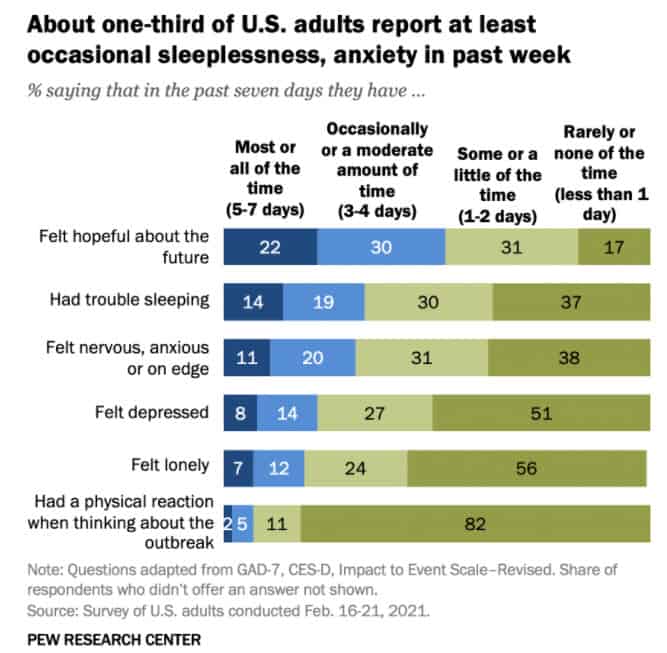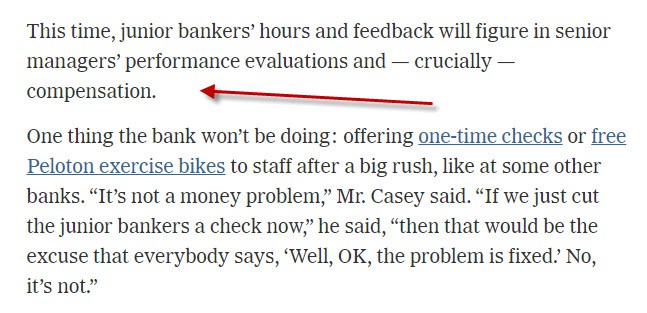The Secret To Wellbeing At Work Is…. Leadership
We spent the last 15 months talking with hundreds of HR leaders about their well-being programs and the focus is massive. Companies are hiring Chief Health Officers, Head of Safety and Well-being, and Directors of Well-being like never before. In fact, there are 55,000 jobs now open for Directors of Wellbeing, VP’s of Wellbeing, or Wellbeing managers in business.
 |
Where is all this going? As our Wellbeing research points out, this is a complex topic – one that covers physical health (diet, exercise, sleep, physical safety), mental health (stress, anxiety, depression, loneliness), financial health (standard of living, lifestyle, budget, debt), and family health (children, family, marriage). And we, as HR and business leaders, now feel responsible for it all.
And it’s even more complex than this. Our new Employee Experience research, which will be launched in a few months, found that the #1 driver of outcomes is not workplace safety and wellbeing, but trust, transparency, and psychological safety. So we have to include diversity, inclusion, and culture in the mix.
Well, just this week we had a call with seven CHROs from large companies in Canada, and I want to share what we learned. These companies range from large financial institutions to healthcare providers, software companies, and IT manufacturers. And after deep discussions of their benefits programs, the proliferation of offerings they’re dealing with (Salesforce, for example, offers more than 270 different health and wellbeing benefit offerings), we agreed on one big thing.
Underneath all the safety, health, and fitness programs the company offers is a pressing need for Human-Centered Leadership. If you really think about it, what really holds people up at work is a sense of psychological safety. If I’m upset or unhappy, can I raise the issue and will somebody listen or will I be punished? If I’m behind on my project, can I explain why? If I’m not getting along with my manager, is there a place we can talk about it?
One of the HR leaders made it very clear. “When our CEO and senior leaders started having all hands meetings and discussed their own challenges with stress, anxiety, and overwork, everyone felt relief.” The company is now training all its leaders in listening, flexibility, and care. Overwork is an epidemic right now and banks like JPM Chase are implementing new management policies to force people to take weekends off. As I put it early in the pandemic, CEO now means Chief Empathy Officer.
And that means leaders must also take care of themselves. A new study by EMSI and Visier shows that mid-level managers are resigning 11% faster than any other employee group right now, they feel the stress more than ever. And new research shows that 3 out of 10 healthcare workers are planning to leave their profession.
What is Human-Centered Leadership?
 |
These work-related, wellbeing, and leadership topics, have a massive impact on wellbeing, health, and mental fitness.
One of the companies we talked with this week was the Bank of Montreal. They told us that in addition to focusing on workplace safety and wellbeing, one of their most successful new programs is teaching managers about mental health and emotional fitness. Just as companies mandate compliance training on diversity, harassment, and anti-money laundering, they are now including education on stress, anxiety, and behavioral health for leaders.
I think this is a massive and important trend. Leadership is key to well-being at work.
Managers and leaders have a much bigger role than “driving results.” We are responsible for taking care of people, monitoring our own behavior, and making sure we are creating a net-positive impact on the entire organization. While business schools don’t teach leaders about the emotional and behavioral issues at work, I think they should. We, as leaders (and we are all leaders at various points in the day), have to think about well-being as one of our most important goals.
Here, for example, is the head of Investment Banking at JPM Chase discussing their new policy:
 |
Let’s move Well-being out of the “benefits department” and make it part of the corporate culture. If you think about it this way I am convinced your company will do the right things.
Resources
 First, read our brand new research on Human-Centered Leadership, developed through hundreds of interviews with HR and business leaders throughout the last year.
First, read our brand new research on Human-Centered Leadership, developed through hundreds of interviews with HR and business leaders throughout the last year.
Second, read up on the Wellbeing Marketplace, to get a perspective on the massive range of solutions available in the market.
Our Senior Director Janet Mertens is leading our research in this area, please reach out to us if you’d like to share your story or get some assistance with your Wellbeing strategy.


